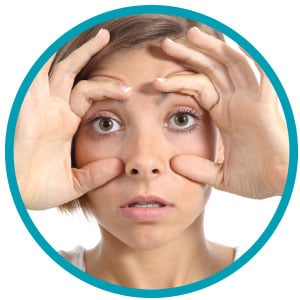Has this ever happened to you? You’re exhausted, so you vow to get a good night’s sleep. You put on your pj’s, hop into bed nice and early . . . and lie there. After a while, you start feeling stressed about how long it’s taking to fall asleep. Now you’re even more awake, so you grab your phone. Next thing you know, it’s 2 a.m. Instead of the 8 to 10 hours of sleep you need, you’ll get 5 hours at most.
If this sounds familiar, you’re not alone. According to a recent national poll on children’s health, more than 40 percent of parents reported their teens had trouble falling asleep at night. And a whopping 70 percent of teens don’t get enough sleep in general. But just because sleep deprivation is common in teens doesn’t mean it’s OK. “Sleep affects every single thing you do on a biological, social, and cognitive level,” says Michael Breus, Ph.D., a sleep medicine expert and author. Not getting enough rest at night can lead to health problems, including mood swings, trouble focusing, symptoms of depression, and even a weakened immune system.
Fortunately, practicing some simple habits can make it easier to fall asleep. Falling asleep quickly will let you get the most rest possible during your time in bed. Read on for some tips so you can nod off as soon as your head hits the pillow—and wake up ready for the day.



